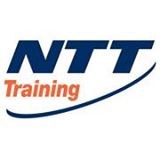|
Hydraulics Workshop: Hydraulics & Basic Electrical Applications On-Site Training
This 4-day classroom course is will teach you both about Hydraulic Systems and the Electrical components that power them. Course Description/AgendaThis 4-day classroom course is will teach you both about Hydraulic Systems and the Electrical components that power them. First - Learn how to keep fluids positively confined through the entire system and prevented from going anywhere except where you want them to go. Properly constructed hydraulic systems possess a number of favorable characteristics. Increase your knowledge of basic hydraulics and become a better troubleshooter, which helps increase productivity, decrease downtime and maintenance costs. Then - Gain a basic understanding of electricity generation and delivery. Learn how electricity is applied to transformers, motors and common electrical devices; how and where these components work and their applications. You will also learn and practice safe methods and how to choose the proper instruments and tools to measure and comprehend the characteristics and properties of electrical signals in terms of voltage, current and impedance (resistance). Gain invaluable experience in using and understanding electricity and its function in an electrical circuit. The course covers all aspects of electricity, including ohm?s law, terminology, common circuits, test equipment, safety, generators, motors and relays. Theory and explanations support numerous practical hands-on exercises, and can apply to real world situations. The full course content is for apprentices, machine operators, mechanics, technicians, supervisors and other trades people. Its benefit is being able to find, understand and fix electrical problems more easily, thereby reducing downtime. NOTE This is not an "electro-Hydraulic" course. It does not address proportional or Servo valve technology. Who Should Attend This is a systems-oriented course and thus also great for cross-training. People who will benefit from attending this course include:
What You'll Learn The course content is for apprentices, machine operators, mechanics, technicians, supervisors and other trades people. Its benefit is being able to find, understand and fix electrical problems more easily, thereby reducing downtime. In this 4-day classroom course you learn how to: Hydraulic Systems
Basic Electricity
NOTE This is not an "electro-Hydraulic" course. It does not address proportional or Servo valve technology. COURSE AGENDA | Hydraulics 2-DAYHYDRAULIC PRINCIPLES
HYDRAULIC PUMPS
FLOW, PRESSURE AND DIRECTIONAL CONTROL VALVES
HYDRAULIC CYLINDERS
HYDRAULIC MOTORS
ACCUMULATORS
HYDRAULIC FLUIDS
FLUID CONDUCTORS
RESERVOIRS, HEAT EXCHANGERS AND FILTERS
COURSE AGENDA | Basic Electricity 2-DAYBASIC ELECTRICITY
BASICS OF MULTIMETERS
ELECTRICAL SAFETY
COMMON WIRING DEVICES
COMMON WIRING DEVICES, CONTINUED
LIGHTING & HEATING
CONDUCTORS & RACEWAYS
|
 Add to favorites
Add to favorites Email this page
Email this page
|
||||||||||||


 On-Site Training
On-Site Training Seminar
Seminar